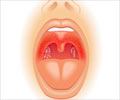In a preliminary study conducted in the Proceedings of the National Academy of Sciences, it was reported that algae virus present in the throats of people can affect their cognitive abilities.

The virus, known as Acanthocystis turfacea Chlorella virus 1, or ATCV-1, also appeared to limit the cognitive abilities of mice.
The mice had a harder time navigating a maze and noticing new objects in their surroundings after they were infected.
It remains unclear if the virus was truly driving the drop in mental functioning. Researchers have not yet shown the cause and effect between the virus and the intelligence results.
"At this point we do not think that this virus should be considered as a threat to individual or public health," said lead researcher Robert Yolken, a virologist at Johns Hopkins University in Baltimore, Maryland.
"We do think that there is a need for additional medical and scientific studies of the effects of infectious agents which are common in the environment on human health and cognition," Yolken told AFP.
Advertisement
Experts have been studying viruses similar to ATCV-1 for 35 years, said senior author James Van Etten of the University of Nebraska, an expert on algal viruses.
Advertisement
"This finding was certainly surprising to us," Van Etten told AFP.
"These viruses are ubiquitous in fresh water ponds and streams throughout the world," Van Etten said.
He noted that the virus -- previously thought to only infect algae -- could make its way into the human body when people swallow water while swimming.
There might also be another host in nature, such as mosquito larvae, he said.
But the nature of the disease is still in the early stages of analysis.
It is also unknown if the virus’s effects on the brain are lasting or temporary.
Scientists have long understood that viruses interact with DNA, and further studies could shed more light on the role of the virus on cognition.
"As more studies like this are conducted, I believe we’ll find out there’s even more interaction between viruses, bacteria and fungi that are either ingested or breathed into our noses and mouths and the overall human condition," said Jordan Josephson, ear nose and throat specialist at Lenox Hill Hospital in New York, who was not involved in the study.
"I believe this new research is just the tip of the iceberg in linking viruses in the human oral cavity to the development of various health conditions."
Source-AFP














